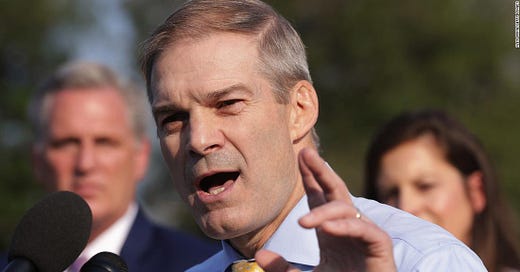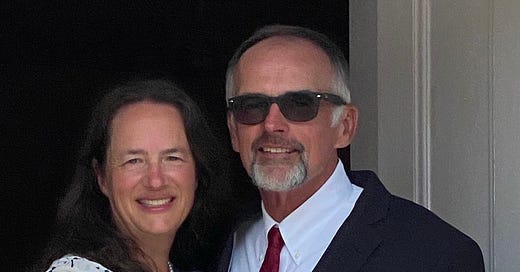
Russia’s threat to push troops into Ukraine highlights Biden’s approach to foreign policy. Rather than issuing military threats, he has worked with European allies to put economic pressure on Russia. So far, it appears to be heading off the crisis.
“What I am doing is putting together what I believe…will be the most comprehensive and meaningful set of initiatives to make it very, very difficult for Mr. Putin to go ahead and do what people are worried he may do,” Biden said on December 3.
On December 6, the U.S. issued a comprehensive strategy for combating global corruption, including money laundering and attacks on journalists. In a two-hour video call the next day, Biden warned Putin “that the U.S. and our Allies would respond with strong economic and other measures in the event of military escalation.” Biden immediately informed leaders in the United Kingdom, France, Germany, and Italy about the call (Secretary of State Antony Blinken spoke to Ukraine President Volodymyr Zelensky on December 6).
Russia depends on petroleum exports and is currently waiting on approval from German regulators to start pumping gas through the $11 billion Nord Stream 2 pipeline under the Baltic Sea. The U.S. says Germany has agreed to shut the pipeline down if Russia invades Ukraine. This puts pressure on Germany’s new chancellor, Olaf Scholz, who took over today when Angela Merkel stepped down, but the European Union is talking about permitting the European Commission, the E.U.’s executive branch, to sanction foreign countries without getting each country to sign on individually. Sanctions would go into effect unless a majority of the E.U. countries voted to lift them, imposing unity that would create a powerful economic weapon against Russia.
Meanwhile, Foreign Policy magazine’s national security reporter Jack Detsch tweeted yesterday that, according to Undersecretary of State Victoria Nuland, the U.S. is considering sanctions that could “[isolate] Russia completely from the global financial system.” That’s a threat to cut Russia out of the Society for Worldwide Interbank Financial Telecommunication (SWIFT), a banking cooperative in Brussels that facilitates financial transactions around the world. European leaders considered cutting Russia off from SWIFT after Putin invaded Ukraine in 2014 but decided against it because the effect on Russia would be so extreme: Russia relies on SWIFT to move its payment for petroleum exports.
SWIFT also makes sanctions effective. Since more than 40% of global transactions through SWIFT—and almost all oil purchases—take place in dollars, they are cleared through American banks. This means the U.S. can claim jurisdiction over them, giving the U.S. government financial and legal power to add muscle to foreign policy.
Blinken explained: “[O]ne country trying to tell another what its choices should be, including with whom it associates, that’s not an acceptable proposition. Changing the borders of another country by force, that’s not an acceptable proposition, because what that does is it undermines the entire international system, the rules-based order that we have invested in, we’ve been living by, and we think has done much to promote peace and security. And so if those basic principles go challenged and are allowed to happen with impunity, that’s going to undermine the entire system. That’s why this is…bigger even than Ukraine.”
He added that if we’re not leading, then “either someone else is likely to be, and probably not in a way that actually [advances] the interests and the values of the American people; or, maybe just as bad, no one is, and then you have a vacuum that tends to be filled by chaos and law of the jungle before it’s filled by anything else.”
And yet, Tucker Carlson and other Fox News Channel personalities are echoing Russian talking points, saying that Putin is building up troops near Ukraine simply because he “wants to keep his western border secure.” Since 2014, when Ukraine threw out a pro-Russian leader, it has swung toward Europe and the North Atlantic Treaty Organization (NATO), becoming a key U.S. ally. Carlson calls Ukraine’s interest in allying with Europe the U.S. “plan[ning] to control Ukraine no matter what.”
Back at home, today Washington Post reporters Beth Reinhard, Jacqueline Alemany, and Josh Dawsey reported that a fan of right-wing media personality Alex Jones put $650,000 into the organizations promoting and staging the January “Stop the Steal” event in Washington, D.C. Julie Fancelli is the 72-year-old daughter of the founder of the Publix grocery store chain and a Publix stockholder, and while she has expressed horror over the violence on January 6, the company wants to distance itself from her actions. It told the Washington Post: “We are deeply troubled by Ms. Fancelli’s involvement in the events that led to the tragic attack on the Capitol on January 6.”
That impulse to isolate key participants in the January 6 insurrection shows in the rush of more than 275 witnesses so far to testify before the Select Committee to Investigate the January 6th Attack on the U.S. Capitol, while former Department of Justice lawyer Jeffrey Clark, who pushed the idea of voter fraud, and Trump loyalist Roger Stone say they will take the Fifth.
Yesterday, Trump’s former chief of staff, Mark Meadows, refused to appear for a scheduled deposition. Instead he said he was willing to answer questions in writing, an ask that often suggests a person is hoping to avoid committing perjury. His lawyer complained that the committee wasn’t taking Meadows’s “executive privilege” defense seriously, and objected to “wide ranging subpoenas” to Meadows’s cell phone provider.
Neither Biden nor Trump has asserted executive privilege over Meadows’s testimony. Meadows and Trump adviser Stephen Bannon, who has been indicted for contempt of Congress for his own refusal to respond to a subpoena, say they want to hear the outcome of Trump’s assertion of executive privilege over subpoenaed records from the National Archives and Records Administration because it might change their defense. (Bannon was not a government official but a podcaster in January, undercutting his claim to be covered by executive privilege.)
“There is no legitimate legal basis for Mr. Meadows to refuse to cooperate with the Select Committee and answer questions about the documents he produced, the personal devices and accounts he used, the events he wrote about in his newly released book, and, among other things, his other public statements,” committee chair Bennie Thompson (D-MS) responded. “The Select Committee is left with no choice but to advance contempt proceedings and recommend that the body in which Mr. Meadows once served refer him for criminal prosecution.”
Thompson’s letter outlined some of what Meadows has already shared with the committee, including “a November 6, 2020, text exchange with a Member of Congress apparently about appointing alternate electors as part of a plan that the Member acknowledged would be ‘highly controversial’ and to which Mr. Meadows apparently said, ‘I love it’; [and] an early January 2021 text message exchange between Mr. Meadows and an organizer of the January 6th rally on the Ellipse.”
In the material was also an email from November 7, 2020, “discussing the appointment of alternate slates of electors as part of a ‘direct and collateral attack’ after the election,” and an “email regarding a 38-page PowerPoint briefing titled ‘Election Fraud, Foreign Interference & Options for 6 JAN’ that was to be provided ‘on the hill’; and, among others, a January 5, 2021 email about having the National Guard on standby.”
Thompson’s letter noted that the information came from Meadows’s personal cell phone and email address instead of his government accounts, raising the question of whether this information went to the National Archives as the law requires. He also noted that Meadows had withheld “several hundred” emails and “over 1000” text messages, claiming they were covered by executive privilege.
Wednesday night, Meadows sued House Speaker Nancy Pelosi (D-CA) and all nine members of the House January 6 committee in D.C.’s U.S. District Court to block both his subpoena and the one to his cell phone company, saying they were “overly broad and unduly burdensome.”
Committee vice chair Liz Cheney (R-WY) told CNN: “We look forward to litigating that.”
—
Notes:
https://qz.com/1893235/swift-transfer-system-leaves-china-vulnerable-to-us-sanctions/
https://www.thebalance.com/what-is-a-petrodollar-3306358
https://carnegiemoscow.org/commentary/84634
https://www.washingtonpost.com/us-policy/2021/12/07/democrats-republicans-debt-ceiling-deal/
https://carnegiemoscow.org/commentary/84634
https://talkingpointsmemo.com/news/january-6-committee-advance-contempt-proceedings-meadows
https://www.cnn.com/2021/12/08/politics/mark-meadows-lawsuit/index.html





This is the clearest explanation I've seen of how these particular new sanctions against Russia would work - I now understand their significance for the Russian economy. Thank you, Heather, for your letters and for the huge public service you provide in your writings and research
Do I sense a power shift to the Select Committee over those called to testify? Executive privilege are empty shell casings and refusals to testify may actually have real consequences. (We hope.)
Yesterday Nancy Pelosi at a news briefing flatly stated that she will "Never forgive the former president of the United States" for causing the Jan. 6 insurrection and putting members of Congress and their young staffers through that traumatic event. Neither should we. March on, Nancy!